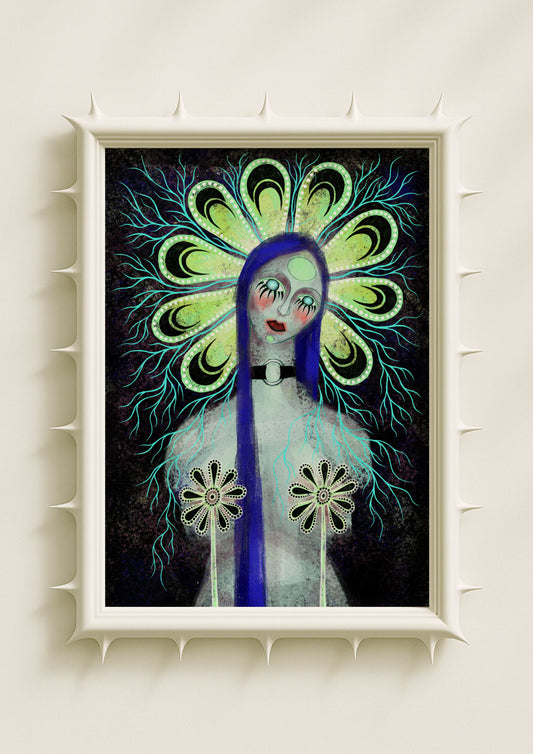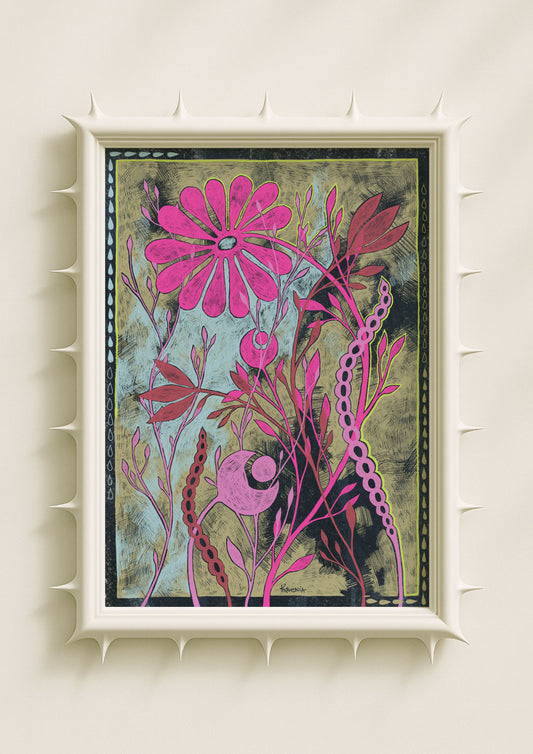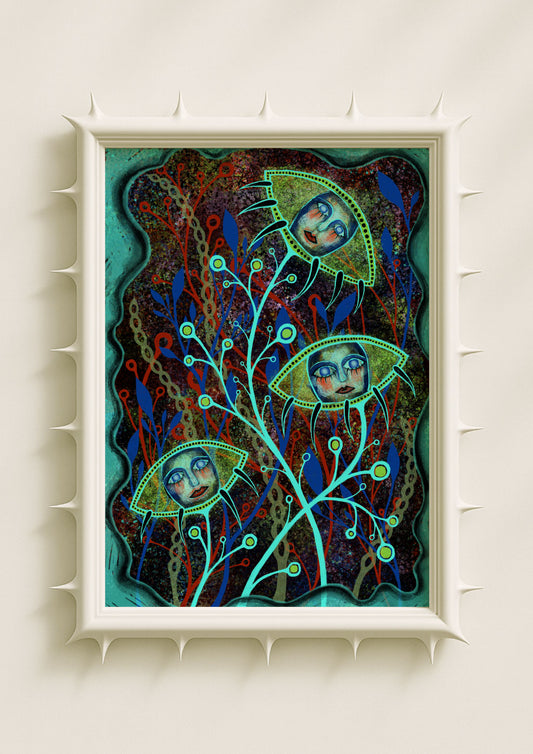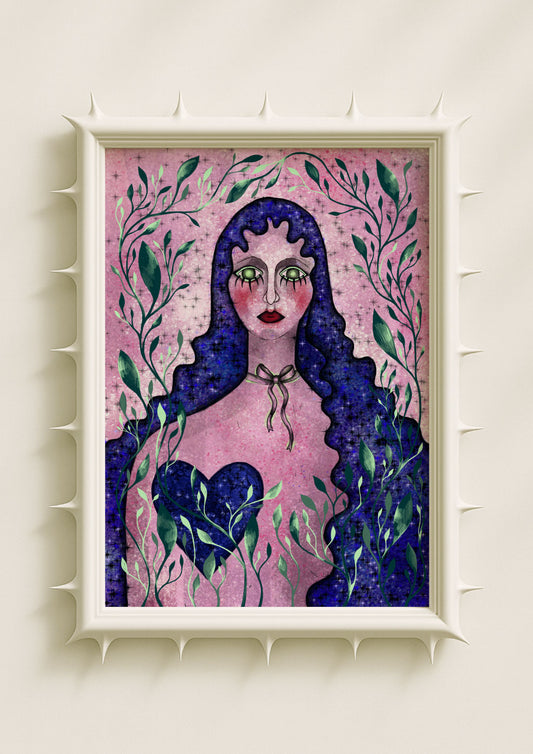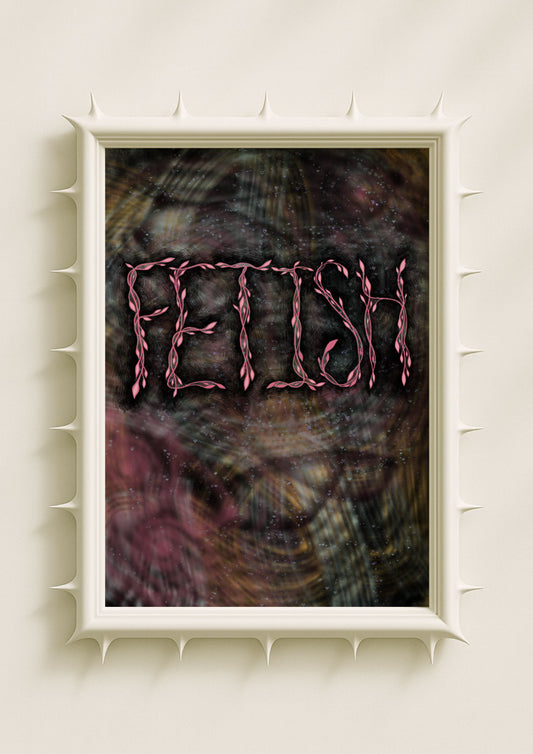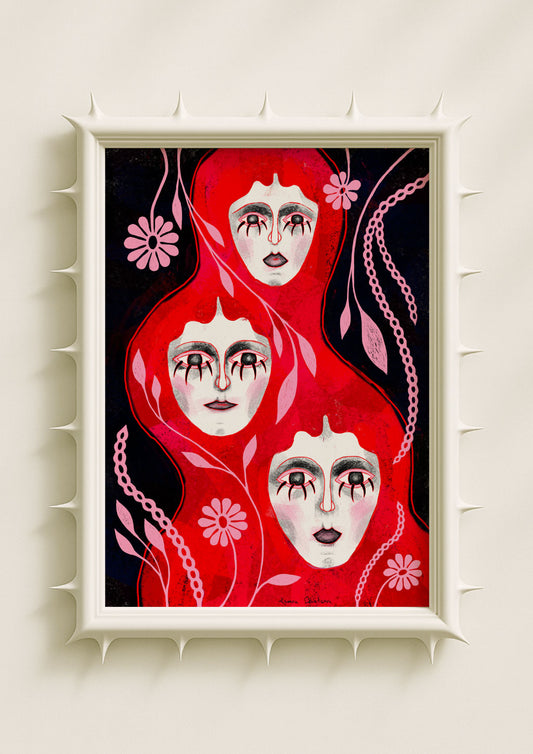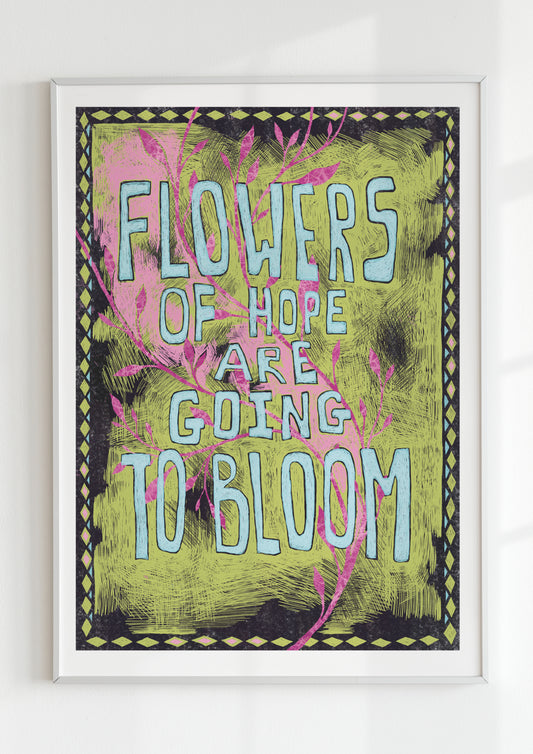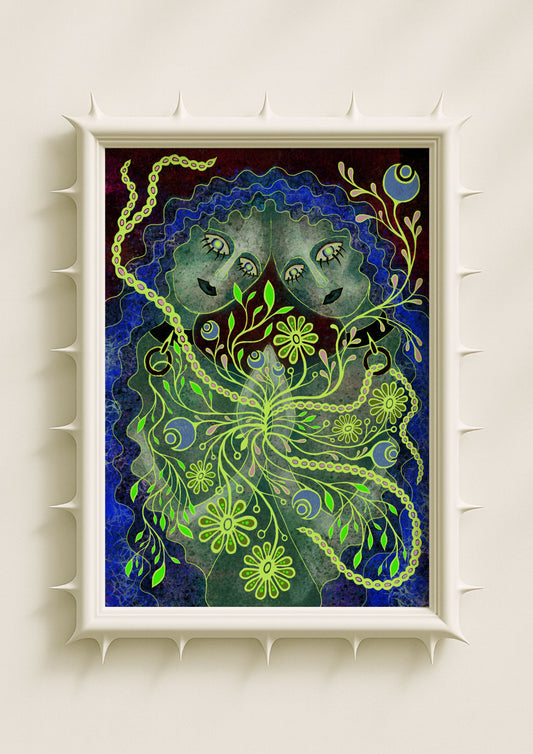Why I Invent Plants Instead of Painting Real Ones
Real flowers already carry meaning, but invented ones carry possibility. When I draw or paint botanicals that don’t exist — long petals that stretch like whispers, stems that twist with their own hidden logic, blossoms that glow from the inside — I’m not thinking of botany. I’m thinking of emotion. These mythic botanics come from a place where memory, dream and symbolism collide. They feel familiar and foreign at the same time, like plants from a world that mirrors ours but follows different rules. As wall art, they create a small portal in the room — a soft opening into another reality.
Inventing Flora Through Emotion, Not Biology
When I build these imagined species, I start from feeling rather than form. A shy emotion might become a flower that bends inward. A restless thought might become a long, ribbon-like stem. Strength might take shape as sharp petals or bold colours. Instead of starting with reference images, I follow the rhythm of the gesture. The plant forms itself. A lot of these shapes come from instinct — curves I’ve drawn since childhood, silhouettes that always seem to return in new variations. Over time, they become their own species. Their emotional logic is their classification.

Between Myth and Biology: A Botanical Language of Its Own
My mythic botanics often behave like something between plant and spirit. Some look like they could photosynthesise moonlight. Others feel like underwater creatures pulled onto dry land. Certain blossoms resemble eyes, hearts or wounds, though never literally. They carry metaphor in their anatomy. These plants are not decorative. They are symbolic bodies — emotional stand-ins that grow from the centre of the composition outward. They give the poster a pulse, a sense of breathing softness under the surface.
The Freedom of Creating Flora Without Rules
I love real flowers, but there is a freedom in inventing ones that don’t need to obey gravity, anatomy or taxonomy. In my world, stems can fork into unexpected angles. Petals can be shaped like teardrops, knives or clouds. Colours can bleed together in ways nature wouldn’t attempt — dusty pink dissolving into acid green, violet fading into gold, soft yellow blooming from charcoal shadow. This freedom turns the artwork into a landscape of feeling. It lets the piece grow intuitively, without needing realism to justify its existence.

Mythic Botanics in Portrait Posters
In many of my portrait works, these invented plants become extensions of the figure. They wrap around faces, bloom from shoulders, float behind the head like halos or dreams. They can soften a stern expression, exaggerate a feeling, or create an emotional microclimate around the person. A surreal flower can function like a second voice in the piece — a quiet presence that comments on the portrait without speaking. On a wall, these portraits feel less like images and more like encounters.
Atmosphere Through Botanical Fantasy
Mythic botanics allow an interior to shift atmosphere effortlessly. In minimalist spaces, they break the rigidity of straight lines. In eclectic homes, they deepen the visual story. They feel both emotional and imaginative, offering a touch of fantasy without becoming decorative kitsch. Their shapes make a room feel softer, stranger, more interesting — like the space itself is dreaming. Many people describe my plant forms as calming even when they are bold. The surreal helps the mind wander.
Color Palettes That Reinforce Otherworldliness
Color is essential in making these botanicals feel like creatures from elsewhere. Lavender petals against black, jade leaves against pale peach skin, pink blooms glowing on deep teal — each palette creates a specific emotional temperature. Sometimes the colours feel nocturnal, sometimes underwater, sometimes like something growing in the dark part of the imagination. As wall art, these palettes influence the mood of the room, creating a balance between mystery and softness.

Why We Respond to Imagined Nature
Even when plants aren’t real, we instinctively understand them. Nature is part of our emotional vocabulary. When it becomes surreal, it becomes symbolic. People connect to these invented botanicals because they feel like metaphors for inner life — delicate, strange, resilient, ever-changing. They offer beauty without predictability, comfort without cliché. A mythic flower can speak to the part of us that doesn’t have words.
A Garden That Exists Only on the Wall
In the end, my mythic botanics are a way of mapping emotion. They allow me to build gardens that couldn’t survive in the physical world but thrive on paper, canvas or print. When they enter a home, they bring a quiet sense of wonder — a reminder that not all beauty needs explanation, and not all nature needs to be real to feel alive.
